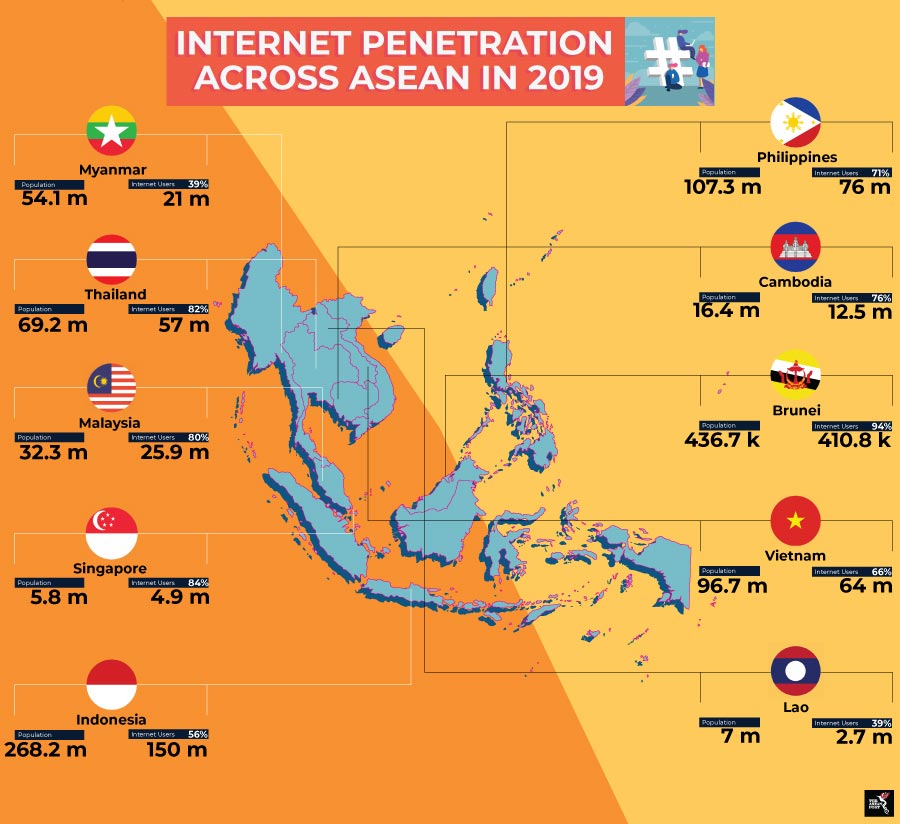The Fourth Industrial Revolution is a train that you either get on or you’ll find yourself being left far, far behind. ASEAN is aware of this. We’ve seen countries like Indonesia and Thailand take lessons from Germany’s model of a 4.0 economy. We’ve also seen countries like Malaysia invest large sums of money on the expansion of information technology (IT) infrastructure to provide an enabling environment for the growth of the digital economy. Advanced countries like Singapore need no further explanation.
Even in Cambodia, International non-profit organisations like Oxfam International have set up the Blockchain for Livelihoods from Organic Cambodian Rice (Blocrice) which kicked off a pilot project for last year's harvest with 50 organic rice farmers onboard. Now, the Ministry of Post and Telecommunications in Lao PDR has also urged the government there to place more focus on the digital economy to speed up the development of the global initiative.
Recently, Director General of the Lao National Internet Café, Keovisouk Solaphom, claimed that the challenges faced in digitising the local economy was due to the fact that it has not been listed in the development agenda.
“Building a digital economy is essential as the world is moving towards a digital economic age, having passed through the industrial ages of 1.0, 2.0 and 3.0. The current industrial age is 4.0,” he said.
Making the digital economy a priority
Keovisouk’s argument makes perfect sense. If the government does not prioritise the digital economy, then, naturally, – and as other matters take precedence – it will lag behind.
According to We Are Social’s Digital 2019 report, of the approximately seven million Laotians, 39 percent (approximately 2.7 million) are internet users, 39 percent are also active social media users, and 37 percent (approximately 2.6 million) are mobile social media users. This places the country on par with Myanmar which has a much larger population than Lao. However, it pales when compared to other ASEAN countries in the region. Even Indonesia, which has an approximate population of 268.2 million people has a 56 percent internet penetration rate (approximately 150 million) for its population.

But We Are Social isn’t the only one painting a gloomy picture of Lao’s unreadiness to usher in the Fourth Industrial Revolution.
According to the World Economic Forum’s (WEF) Global Competitiveness Index 2017-2018 edition, Lao was ranked 98 out of 137 countries indexed. Out of the 12 pillars, Lao earned the lowest score for technological readiness with only 3.0 points out of 7, ranking a lowly 110 out of 137 countries for the pillar.
This pillar includes components such as availability of latest technologies, firm-level technology absorption, foreign direct investment and technology transfer, internet users, fixed-broadband internet subscriptions, internet bandwidth, and mobile-broadband subscriptions.
Inadequate education
The pillar Lao earned the second lowest score for also raised alarm bells as far as being “ready” to face the Fourth Industrial Revolution goes. This pillar was higher education and Lao scored just 3.5 points out of 7 and ranked 105 out of 137 countries for the pillar.
In fact, according to the WEF’s Executive Opinion Survey 2017, when asked what were the most problematic factors for doing business in Lao, most respondents ranked an “inadequately educated workforce” as the top problem.
It’s clear that Lao has a problem that it needs to address. A poor education system plays a big part in that problem especially considering Lao’s relatively young population compared to most other ASEAN countries. This young population is another reason why Lao needs to get itself ready to embrace the Fourth Industrial Revolution, otherwise it risks falling behind further while the rest of ASEAN competes on a more advanced level. It would perhaps be wise for the government of Lao to heed Keovisouk’s advice and make the development of the digital economy a top priority. But whatever it is that Lao decides to do, it has to move swiftly as the Fourth Industrial Revolution will not wait for it to catch up.
Related articles:
Embracing the Fourth Industrial Revolution
Is the ASEAN workforce ready for the 4th Industrial Revolution?
